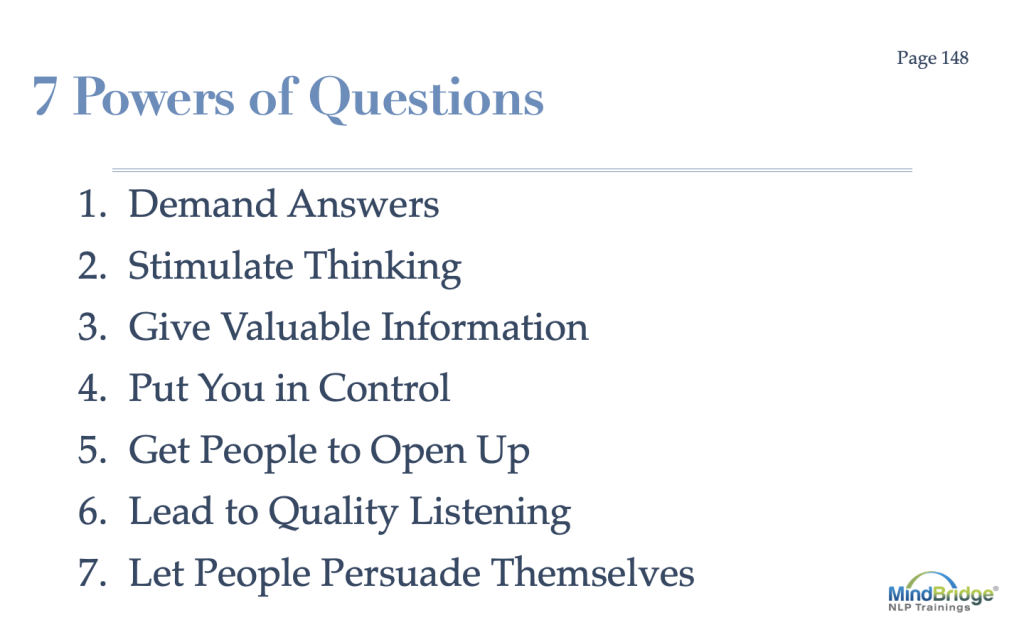Online MindBridge NLP Coach Certification Training
-
Managers as Coaches
-
1 - Introduction to Professional Life Coaching and NLP8 Topics
-
2 - Fundamentals of Influential Communication5 Topics
-
3 - a. Characteristics of Excellence in Communication2 Topics
-
4 - a. Identifying Thinking Styles1 Topic|1 Quiz
-
4 - b. Rapport
-
5 - a. Values Clarification
-
3 - b. Submodalities
-
7 - a. Power of Questions
-
6 - a. Anchoring Techniques2 Topics
-
7 - Clarifying Communication5 Topics
-
7 - b. Intake- Initial Pre-Coach Session
-
8 - Criteria3 Topics
-
8 - a. Perceptual Flexibility - Perceptual Position Quiz3 Topics
-
8 - b. Well-Formed Outcomes3 Topics
-
9 - 3 NLP Techniques Demonstrations
-
10 - Identifying Mind Maps
-
10- a. Meta Program Psychometric Quizzes
-
10 - b. Key Meta Program Patterns Explained7 Topics
-
10 - c. NLP Coach Session Demonstration
-
10 - d. Evaluation Forms -Outcome Coach Session
-
10 - e. Evaluation Video of NLP Coaching Demonstration
-
11 - NLP Coaching Sessions2 Topics
-
11 - a. Evaluation of Demo - Categories of Experience
-
11 - b. Directionalizing the Session
-
12 - Insights and Just for the fun of it!

1. Questions demand answers
When someone asks a question, we are compelled to answer it. The feeling of obligation is what is called the answering reflex.
2. Questions stimulate thinking.
When someone asks a question it stimulates thinking in both the person asking and the person being asked.
3. Questions give us valuable information.
Asking the right question can give us the specific and relevant information we want and need and can generate insights.
4.Questions put you in control.
Everyone feels most comfortable and confident when he or she is in control. Because questions elicit answers, (or at least a search for answers) the asker is in control of the direction of the conversation.
5. Questions get people to open up.
There is nothing more flattering than being asked to tell your story or to give your opinions, insights, and advice. Asking questions shows others you are interested in who they are and what they have to say—and when that happens, even the most reticent individuals are more willing to share their thoughts and feelings.
6. Questions lead to quality listening.
As you improve your ability to ask the right questions, the answers you get become more pertinent and focused, making it easier for you to concentrate on what’s important to the situation.
7. Questions get people to persuade themselves.
People believe more in what they say not what you say. They are more likely to believe something they thought up, and a well-phrased question can get their minds headed in a specific direction. The question is the most overlooked tool in the art of persuasion.
Responses
You must be logged in to post a comment.

The question is the most overlooked tool in the art of persuasion.